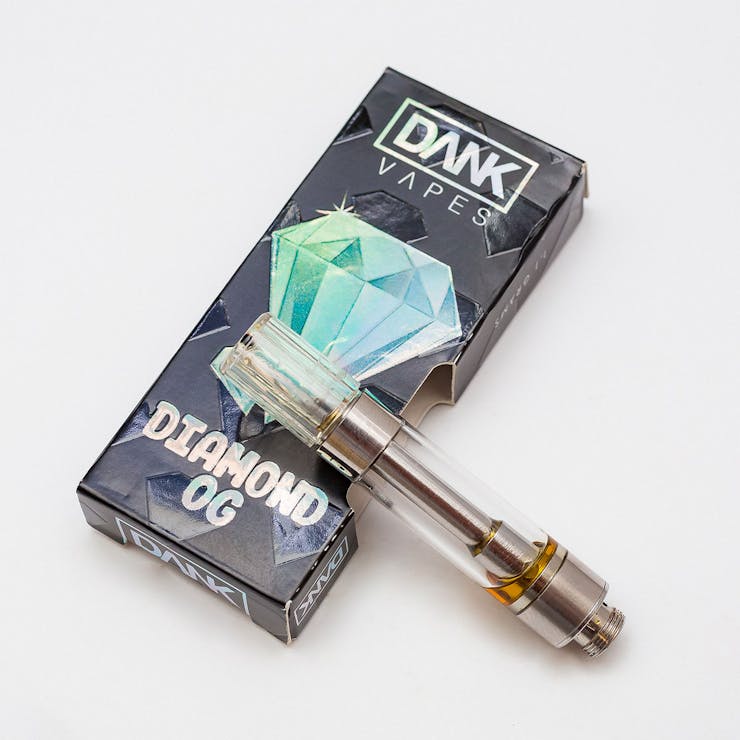Updated Sept. 17 9:41 p.m. PST
The six deaths and 380 cases of suspected vaping-associated pulmonary injury (VAPI) this summer are mostly a problem of the illicit market for THC vape carts.
But regulators in states with adult-use or medical cannabis legalization are using the health crisis to identify and fix gaps in their systems.
“Common sense says if you do not know what you are smoking, don't smoke it.”
On Sept. 9, New York state health officials issued subpoenas for information from vape pen oil additive makers.
In California, Oregon, and Washington, state officials face newfound scrutiny of their lists of acceptable additives in vape carts.
Oregon regulators Sept. 12 told stores to post vape warnings, asked them to hold suspicious products, and told licensed cart markers to immediately admit any “undisclosed agents” or face “legal consequences.” Stores have started voluntarily pulling products. On Sept. 13, California officials raided two illicit stores carrying untested carts. And on Sept. 16, California Gov. Gavin Newsom ordered a crackdown on illegal and counterfeit vapes, increased taxes, and a $20 million public education campaign.
And the $52 billion US cannabis industry, only 22% of which is legal and regulated, is offering new tests for additives, while manufacturers are distancing themselves from their use.
Additive Issue Comes to a Boil
The issue of mysterious, potentially harmful additives in THC extracts has been simmering for years. The injuries this summer have brought industry practices to a boil.
A wide variety of contaminants long found in illicit market vape pens—propylene glycol, vegetable glycerin, medium-chain triglycerides (MCT) oil, pesticides, heavy metals, and residual solvents—can cause pulmonary injury, doctors wrote Sept. 6 in the New England Journal of Medicine.
Floraplex officials told Leafly they estimate 50 million cartridges with “some form of vitamin E oil” are on the street.
That said, several types of vitamin E oils—especially cheap, synthetic tocopheryl-acetate—have emerged as prime suspects in the investigation because they’re relatively new, widely used, potentially harmful if inhaled, and showing up in vape cartridges used by injured patients.
Chemical and vape cartridge experts this week deplored the use of tocopheryl-acetate in vape pens, saying it can cause fat clots and immune reactions in the lung.
New York Wants Tocopheryl-Acetate Data
New York Gov. Andrew Cuomo said Sept. 9 that state officials want information from three diluent thickener makers—Floraplex, Honey Cut, and Mass Terpenes. Tests of all three thickening agents from the companies revealed they were nearly all a type of vitamin E oil called tocopheryl-acetate. The presence of tocopheryl-acetate links all suspicious carts seized in New York and in more than half tested so far by the FDA.
New York will also mandate new warning signs in all vape shops.
“Common sense says if you do not know what you are smoking, don’t smoke it,” Cuomo told reporters earlier today. “And right now, we don’t know what you are smoking in a lot of these vaping substances.”
On Sept. 15, Gov. Cuomo ordered an emergency pause to sales of flavored e-cigarettes.
Legal States Currently Allow Suspicious Substance
While this outbreak is largely a creature of the illicit market, legal states currently allow the presence of a wide variety of additives in vape pens, including tocopheryl-acetate.
Oregon
Last week, Oregon officials announced the first death in the US that may be associated with a vape cartridge purchased legally. On Sept. 9, the Oregon Liquor Control Commission (OLCC) acknowledged to Leafly that one suspicious additive—vitamin E acetate—has up until now been allowed in legal vape carts in that state, if the ingredient is disclosed on the label.
A review of Oregon’s contaminant regulations make no mention of banned additives.
Thickener maker Drew Jones of Mr Extractor told Leafly that he sold tocopheryl-acetate to licensees in Oregon’s regulated adult use cannabis market, with OLCC approval. Jones said the product is very popular. He estimated that as much as 70% of the vape cartridges in America’s illicit cannabis vape cart market contain tocopheryl-acetate. Floraplex officials told Leafly they estimate 50 million cartridges with “some form of vitamin E oil” are on the street.
The OLCC told Leafly that Jones is not a cannabis licensee, and they didn’t knowingly allow tocopheryl-acetate into the legal supply chain.
“Because of the vaping illness crisis the OLCC will consider taking whatever action is necessary to protect consumer health, including the recall of tainted product, and banning inclusion of questionable additives into marijuana products that threaten human health and public safety,” said OLCC spokesperson Mark Pettinger.
California
California Bureau of Cannabis Control regulations do not prohibit tocopheryl-acetate. There are no limits on older diluents, such as propylene glycol or vegetable glycerin, either. The BCC had no further comment at the time this story was published.
No California illnesses or deaths are associated with sales from legal stores, only pop-up shops, said a spokesperson for the California Public Health Department.
Washington
Washington state cannabis regulations mandate ingredients disclosures, but labs there do not yet test for the popular new terpene diluent, experts there said.
Massachusetts
On Thursday, Massachusetts authorities mandated disclosure of any additive ingredients in legal cannabis.
Action Limits Needed?
This summer’s outbreak of pulmonary injuries are expected to ramp up pressure on state regulators to set limits on cannabis additives. Those regulators have to balance the potential for harm against the cost of the regulation. If lab costs are too high, that can raise the cost of legal products and encourage more consumers to remain in the illicit market.
Joshua Richards, lab marketing director at Anresco Labs of San Francisco, said more data should be used to determine if the BCC needs to ban one or more of the vitamin E oils. “If it proves this is what’s getting people sick, yes,” he said.
Industry Adds Analysis, Backs Away From Additives
Richards also said Monday that Anresco Labs has started offering tests for the presence of tocopheryl-acetate for $250 per test, with a one-week turnaround time. Five licensed adult-use cannabis oil manufacturers have already asked Anresco to test oils for the presence of the cutting agent.
In Washington, an official at the Seattle-area lab Confidence Analytics said the company plans to offer testing for a common vitamin E oil molecule, alpha-tocopherol, by midweek.
The new tests aren’t cheap, because they require the labs to purchase new standards against which their machines can measure trace amounts of the substance in diluted samples. Lab personnel must train on new sample preparation and analysis until they can consistently repeat the assay.
On Sept. 17, the International Research Center on Cannabis and Health’s Co-founder and Chief Science Officer Jahan Marcu, Ph.D., warned of the overuse of flavoring and cutting agents called diluents.
“Excessively high levels of specific terpenes may also play a role in lung inflammation. At the end of the day, concentrated terpenes are solvents while ambient levels are safe to use in aromatherapy,” adds Dr. Marcu.
IRCCH is demanding that companies selling diluents publicly disclose all ingredients and their concentrations immediately.
‘No Additive’ Guarantees Touted
Lastly, some legal vape pen brands have long touted their additive-free status. That’s becoming doubly important amid the current scare.
On Sept. 8, the national vape pen brand Dosist distanced itself from additives in its marketing, reminding consumers that it only uses THC oil and cannabis-derived terpenes. You can expect more companies to make similar moves, and quickly.
“At no point in the formulation process does dosist utilize any cutting agents (like Vitamin E acetate), emulsifiers or any synthetic agents that alter the pure cannabis oil and terpene formulation,” the company said in an Instagram post.
Several flavoring vendors including Floraplex and Mr Extractor have suspended sales of thickeners. Other gray market vendors like Honey Cut have shut down their web sites entirely.
Additive makers are also distancing themselves from the conduct of their peers. “We don’t sell thickener” marketing emerged over the weekend.
“We don’t make products that we wouldn’t consume ourselves,” wrote Xtra Laboratories of Arizona.
Traditional dried, cured, unadulterated cannabis flower promises to make a comeback this fall.
And production of additive-free extract—such as rosin or mechanically separated bubble hash and dry sift—will likely accelerate, as well.






